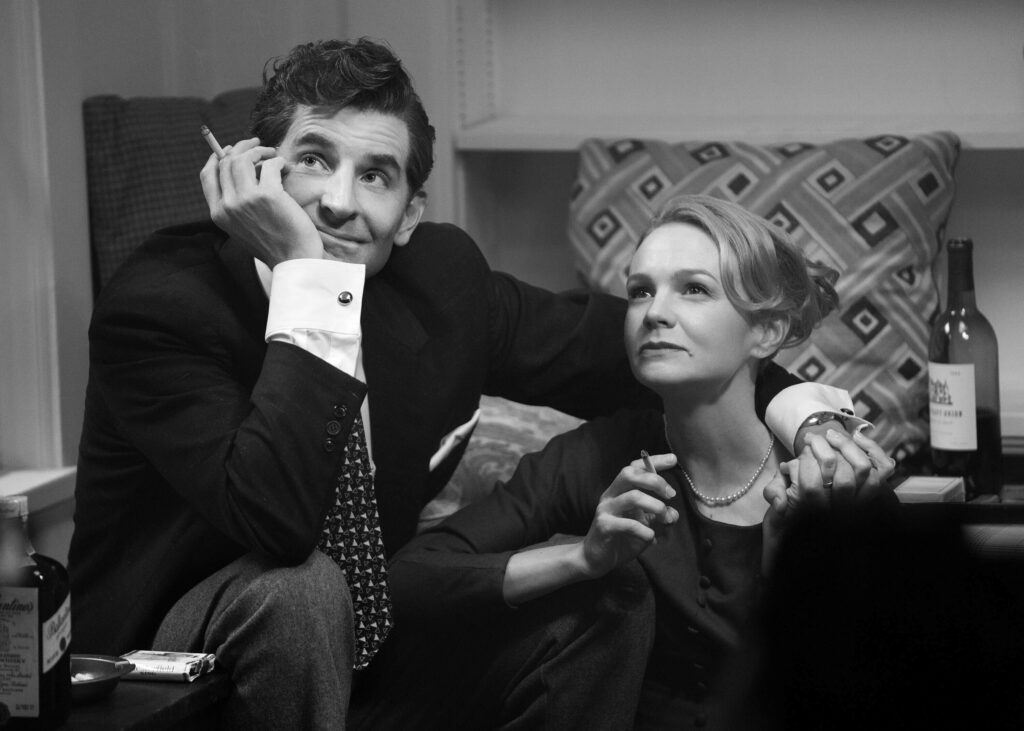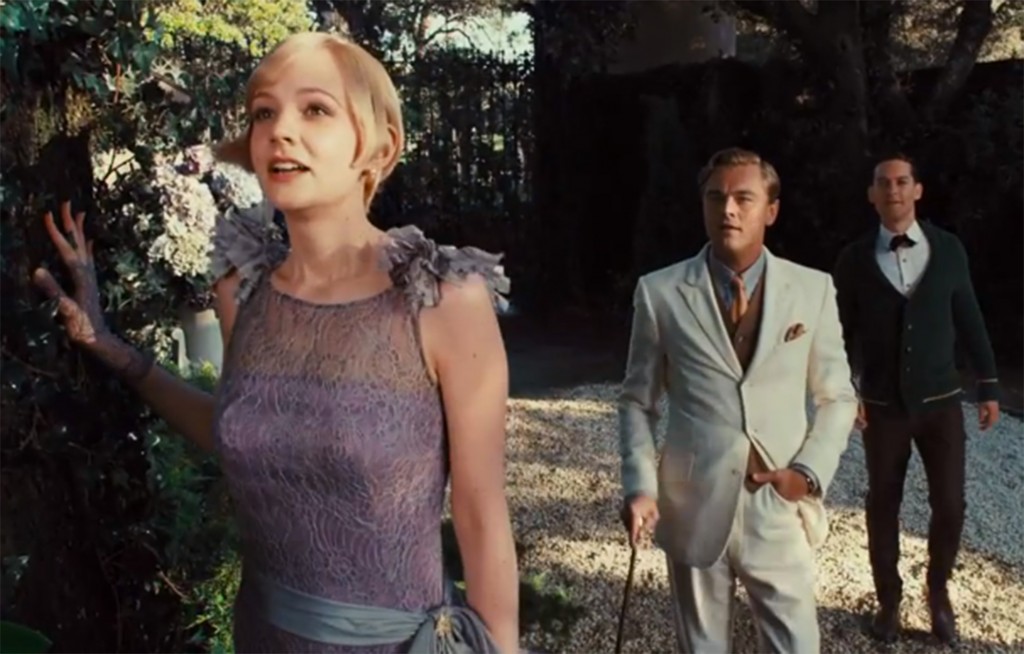
Maestro is the dramatization of the marriage between legendary conductor/composer Leonard Bernstein (Bradley Cooper, who also directed) and his wife Felicia (Carey Mulligan). As portrayed in Maestro, the marriage was shaped by three factors:
- The two shared deep affection for each other, along with interests and sensibilities.
- Bernstein’s career, driven by his genius, soared into superstardom.
- In the first decades of the marriage, the mainstream would not accept a public figure who was gay or bisexual, which Lenny was.
Lenny was the prodigious talent and the celebrity, but Maestro is really Felicia’s story, because she faces the major conflict and because of Carey Mulligan’s sensational performance.
Indeed, although I’m lukewarm about Maestro, Mulligan is one of the two best reasons to see it. The second is a magical six-minute scene in which Bernstein conducts the London Symphony Orchestra in Mahler’s “Resurrection” Symphony No. 2 at Ely Cathedral in 1973; it is as spectacular cinema as we’ve seen (and heard) this year.
Bradley Cooper’s Lenny is a jumble of ebullience, creative energy and conflict-avoidance; he was always, perhaps compulsively, the life of the party. Sharing her life with a guy who sucked out all the oxygen in the room was enough of a roller coaster ride for Felicia. Felicia was pretty open-minded about her husband’s dalliances with other men; but his wanting to bring his male lover (Tommy Cothran, played by Gideon Glick) into her family was a bridge too far.
It seems that Lenny primarily valued Felicia for having his children and accompanying him to trendy parties; the NYT’s Manohla Dargis impeccably describes those as “those fabulously glamorous New York parties that mostly exist in old Hollywood films or in biographies of very important dead people.” He didn’t need her as a business adviser, a creative partner or even a muse, but she was much more than his beard. Her admiration for his artistry wasn’t that of a wannabe or a groupie – Felicia, as a working New York theater actor, was an accomplished artist herself.
So, as was common in the era, its was Lenny who defined their relationship, not he and Felicia together. Carey Mulligan inhabits a character who enjoys the initial exuberance and who slowly observes that Lenny is not going to deliver what she believed that he originally committed to.
Bradley Cooper is an excellent director, as demonstrated by A Star Is Born. Here, he is very cinematic, switching aspect ratios and toggling between black and white and color.
Sarah Silverman is delightful in a very small part as one of Felicia’s friends.
Back when the trailer was released, there was a tempest in a teapot about Cooper’s prosthetic nose, to make him resemble Bernstein, a familiar figure. Bernstein’s his family stepped in and quelled the silliness. But, I was distracted by another prosthetic, the folds of wattles and neck fat on Cooper playing the old Bernstein
I’m decidedly not a fan of classical music (although I did like Amadeus); The Wife likes classical music, and she liked Maestro a bit more than I did. We were both engrossed when Mulligan was onscreen, but I was bored when she wasn’t.
This is a BIG, ambitious movie, and all of my favorite critics liked it more than I did. It’s the kind of movie (like Kramer vs. Kramer or Spotlight) that may garner lots Oscar buzz (with Netflix support), but that we won’t remember in a few years. Maestro is in theaters and streaming on Netflix.


